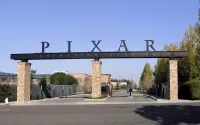Richard Petty, "the King," is a legendary NASCAR driver who raced from 1958 to 1992, primarily for Petty Enterprises. He holds the record for most Cup Series championships (7, tied with Jimmie Johnson) and most race wins (200), including seven Daytona 500 victories. In 1967, he achieved a record of 27 wins in a single season. A member of the renowned Petty racing family, he is considered one of NASCAR's greatest drivers.
July 2, 1937: Richard Petty Born
On July 2, 1937, Richard Lee Petty, nicknamed "the King," was born. He later became a legendary stock car racing driver.
1955: High School Graduation
In 1955, Richard Petty graduated from Randleman High School where he played football as an All-Conference guard.
1958: Debut in NASCAR
In 1958, Richard Petty began his career as a stock car racing driver in the NASCAR Grand National Series, driving the No. 43 Plymouth/Pontiac for Petty Enterprises.
1958: Marriage to Lynda Owens
In 1958, Richard Petty married Lynda Owens. She later passed away in 2014.
1959: Named NASCAR Rookie of the Year
In 1959, Richard Petty was named NASCAR Rookie of the Year after achieving 9 top 10 finishes, including six Top 5 finishes.
1959: Lee Petty Wins Daytona 500
In 1959, Richard Petty's father, Lee Petty, won the inaugural Daytona 500. Lee was also a three-time NASCAR champion.
1960: First Career Win
In 1960, Richard Petty finished 2nd in the NASCAR Grand National Points Race. He also got his first career win at the Charlotte Fairgrounds Speedway.
1963: Breakout Year
1963 was a breakout year for Richard Petty, winning at tracks like Martinsville and Bridgehampton.
1964: First Daytona 500 Win
In 1964, Richard Petty won his first Daytona 500, leading 184 of 200 laps. He drove a potent Plymouth with a Hemi engine, which contributed to his 9 victories and first Grand National championship that year.
February 28, 1965: Drag Racing Accident
On February 28, 1965, while competing as a drag racer due to the Chrysler boycott of NASCAR, Richard Petty crashed his Hemi Barracuda at Southeastern Dragway in Dallas, Georgia, resulting in the death of an eight-year-old boy and injuries to seven others. Petty faced lawsuits as a result of this accident.
February 27, 1966: Second Daytona 500 Win
On February 27, 1966, Richard Petty won his second Daytona 500, overcoming a 2-lap deficit when the race was stopped early due to a thunderstorm. He became the first driver to win the event twice.
October 1, 1967: End of 10-Race Win Streak
On October 1, 1967, Richard Petty's record 10-race win streak came to an end. The streak had started on August 12, 1967.
1967: Record Season
In 1967, Richard Petty had a record-breaking season, winning 27 races, which is the most races won in a single season. He also won a record of 10 races in a row during that season.
1968: Win at Occoneechee Speedway
In 1968, Richard Petty won 16 races, including the last ever race at Occoneechee Speedway.
1969: D. Pearson
In 1969, D. Pearson won an unspecified event.
1969: Switch to Ford
In 1969, Richard Petty switched to Ford, driving the Ford Torino Talladega after believing that Plymouth was not competitive on super-speedways. He won 10 races and finished second in points that year.
1970: B. Isaac
In 1970, B. Isaac won an unspecified event.
1970: Win at Middle Georgia Raceway
In 1970, Richard Petty recorded one of his 4 wins at Middle Georgia Raceway. He drove the race while very ill.
1970: Return to Plymouth
In 1970, Richard Petty returned to Plymouth, driving the Plymouth Superbird. He won in the car. This is the car in which Petty is cast in the Pixar film Cars (2006).
February 14, 1971: Third Daytona 500 Win
On February 14, 1971, Richard Petty won his third Daytona 500, driving a Plymouth Road Runner and becoming the first driver to win the race 3 times. This win was part of an historic year in which he earned over $1 million and claimed his 3rd Grand National Championship.
1971: R. Petty
In 1971, R. Petty won an unspecified event.
1971: Consecutive Starts Record Begins
In 1971, Richard Petty began a record of 513 consecutive starts in NASCAR races, which lasted until 1989.
1972: R. Petty
In 1972, R. Petty won an unspecified event.
1972: STP Sponsorship and Fourth NASCAR Cup Series Championship
In 1972, STP began a 28-year sponsorship arrangement with Petty. Petty also won his 4th NASCAR Cup Series championship in 1972. In the middle of the year he drove a 1972 Dodge Charger.
February 18, 1973: Fourth Daytona 500 Win
On February 18, 1973, Richard Petty won his 4th Daytona 500, driving a Dodge Charger.
1973: B. Parsons
In 1973, B. Parsons won an unspecified event.
1974: R. Petty
In 1974, R. Petty won an unspecified event.
1974: Chevrolet Monte Carlo
In 1974, Richard Petty began racing a secondhand 1974 Chevrolet Monte Carlo at the fall race at Michigan.
1975: Randy Owens Death
In 1975, Lynda's brother, Randy Owens who was a member of Petty's pit crew, died in a pit road accident at the Winston 500, when a water tank exploded.
1975: R. Petty
In 1975, R. Petty won an unspecified event.
1975: Wins World 600 and Sixth Winston Cup
In 1975, Richard Petty won the World 600 for the first time and won his 6th Winston Cup with 13 victories, a modern NASCAR record tied in 1998.
1976: C. Yarborough
In 1976, C. Yarborough won an unspecified event.
1976: Famous Finish at Daytona 500
In 1976, Richard Petty was involved in one of the most famous finishes in NASCAR history at the Daytona 500 with David Pearson. Both drivers crashed near the finish line, and Pearson won as Petty's car stalled.
1977: End of Dodge Charger Era
At the end of 1977, Richard Petty stopped driving the Dodge Charger. He had been driving it since 1973.
1977: C. Yarborough
In 1977, C. Yarborough won an unspecified event.
1978: C. Yarborough
In 1978, C. Yarborough won an unspecified event.
1978: Winless Season and Switch to Chevrolet
In 1978, Richard Petty did not win any races. The Petty Enterprises team struggled with the new Dodge Magnum. Consequently, Petty switched to a secondhand 1974 Chevrolet Monte Carlo during the fall race at Michigan.
1979: R. Petty
In 1979, R. Petty won an unspecified event.
1979: Seventh NASCAR Championship
In 1979, Richard Petty won his seventh and final NASCAR championship, driving an Oldsmobile Cutlass Supreme and Chevrolet. He won the Daytona 500 and four additional races. The championship was won by only 11 points, the closest margin until 1992.
1979: Sixth Daytona 500 Win and Championship
In 1979, Richard Petty won his sixth Daytona 500, which was the first to be televised live flag-to-flag. Petty also won his seventh and final NASCAR Winston Cup Championship in 1979.
1980: D. Earnhardt
In 1980, D. Earnhardt won an unspecified event.
January 1981: Petty tests the Dodge Mirada
In January 1981, the Petty team tested a 1981 Dodge Mirada at Daytona for high-speed capabilities after a personal request from Lee Iacocca. However, the car's speed was not competitive with GM and Ford, leading Petty to switch to a Buick Regal.
January 17, 1981: Fans gather to watch Dodge Mirada testing
On January 17, 1981, approximately 15,000 fans attended Daytona Speedway to observe Richard Petty testing the 1981 Dodge Mirada. However, the car's speed of 186 mph was slower than GM and Ford cars, leading Petty to abandon his return to Dodge.
1981: D. Waltrip
In 1981, D. Waltrip won an unspecified event.
1982: D. Waltrip
In 1982, D. Waltrip won an unspecified event.
1982: STP Car Wins Indianapolis 500
In 1982, Gordon Johncock won the Indianapolis 500 in an STP car that had a primarily "Petty Blue" scheme. STP's motorsport paint schemes were the result of negotiations with Petty in 1972.
October 1983: Controversial win at Charlotte
In October 1983, Richard Petty had a controversial win at Charlotte, recognized by NASCAR as win No. 198. Following this win, Petty departed from his father's race team for the 1984 season.
1983: B. Allison
In 1983, B. Allison won an unspecified event.
May 20, 1984: Petty wins the Budweiser 500
On May 20, 1984, Richard Petty won the Budweiser 500 at Dover International Speedway. Under modern NASCAR regulations, this would be recognized as his 200th Cup class win.
July 4, 1984: Petty wins his 200th race at the Firecracker 400
On July 4, 1984, Richard Petty won his officially-recognized 200th race at the Firecracker 400 at Daytona International Speedway. President Ronald Reagan attended the race and celebrated with Petty and his family in victory lane.
1984: T. Labonte
In 1984, T. Labonte won an unspecified event.
1985: D. Waltrip
In 1985, D. Waltrip won an unspecified event.
1986: D. Earnhardt
In 1986, D. Earnhardt won an unspecified event.
1987: D. Earnhardt
In 1987, D. Earnhardt won an unspecified event.
1988: B. Elliott
In 1988, B. Elliott won an unspecified event.
1989: R. Wallace
In 1989, R. Wallace won an unspecified event.
1989: End of Consecutive Starts Record
In 1989, Richard Petty's record of 513 consecutive NASCAR race starts came to an end. The record had started in 1971.
1990: D. Earnhardt
In 1990, D. Earnhardt won an unspecified event.
October 1, 1991: Petty announces retirement
On October 1, 1991, Richard Petty announced his retirement after the 1992 season, embarking on a year-long Fan Appreciation Tour.
1991: D. Earnhardt
In 1991, D. Earnhardt won an unspecified event.
1992: A. Kulwicki
In 1992, A. Kulwicki won an unspecified event.
1992: Retirement from NASCAR
In 1992, Richard Petty retired from stock car racing, concluding his career in what was then known as the NASCAR Winston Cup Series.
1992: Closest Points Margin
In 1992, Richard Petty's points margin of 11 points which won him the NASCAR championship in 1979 was the closest points margin in NASCAR history.
August 18, 1993: Petty participates in tire test at Indianapolis
On August 18, 1993, Richard Petty participated in a tire test at the Indianapolis Motor Speedway in preparation for the 1994 Brickyard 400, driving several laps and donating his car to the Speedway's museum.
1993: D. Earnhardt
In 1993, D. Earnhardt won an unspecified event.
1994: D. Earnhardt
In 1994, D. Earnhardt won an unspecified event.
1995: J. Gordon
In 1995, J. Gordon won an unspecified event.
1995: Petty joins CBS as a color commentator
In 1995, Richard Petty transitioned to television broadcasting, becoming a color commentator for CBS. He covered three races for CBS, including the Daytona 500, and one race for TBS, the Coca-Cola 600.
1996: T. Labonte
In 1996, T. Labonte won an unspecified event.
1997: J. Gordon
In 1997, J. Gordon won an unspecified event.
1998: J. Gordon
In 1998, J. Gordon won an unspecified event.
1998: Jeff Gordon Ties Victory Record
In 1998, Jeff Gordon tied Richard Petty's modern-era (1972-present) NASCAR record for victories in a season, with 13 wins.
1999: D. Jarrett
In 1999, D. Jarrett won an unspecified event.
May 12, 2000: Adam Petty's Death
On May 12, 2000, Adam Petty, Richard Petty's grandson and Kyle Petty's son, was killed in a practice crash at New Hampshire Motor Speedway.
2000: B. Labonte
In 2000, B. Labonte won an unspecified event.
2001: J. Gordon
In 2001, J. Gordon won an unspecified event.
2002: T. Stewart
In 2002, T. Stewart won an unspecified event.
2003: M. Kenseth
In 2003, M. Kenseth won an unspecified event.
2004: Ku. Busch
In 2004, Ku. Busch won an unspecified event.
2005: T. Stewart
In 2005, T. Stewart won an unspecified event.
2006: J. Johnson
In 2006, J. Johnson won an unspecified event.
2006: Voice Role in Pixar's Cars
In 2006, Richard Petty and his wife Lynda had voice roles in the Pixar film "Cars". In the movie, Richard Petty's character is based on the Plymouth Superbird he drove in 1970.
2007: J. Johnson
In 2007, J. Johnson won an unspecified event.
2008: J. Johnson
In 2008, J. Johnson won an unspecified event.
2009: J. Johnson
In 2009, J. Johnson won an unspecified event.
2010: J. Johnson
In 2010, J. Johnson won an unspecified event.
2010: Induction into NASCAR Hall of Fame
In 2010, Richard Petty was inducted into the inaugural class of the NASCAR Hall of Fame. He is statistically the most accomplished driver in NASCAR history.
May 2011: Petty serves as Grand Marshal for STP 400
In May 2011, Richard Petty was selected as the Grand Marshal for the 2011 STP 400 of the Sprint Cup Series.
2011: T. Stewart
In 2011, T. Stewart won an unspecified event.
2012: B. Keselowski
In 2012, B. Keselowski won an unspecified event.
2013: J. Johnson
In 2013, J. Johnson won an unspecified event.
2013: Winning 500th Race Start
In 2013, Matt Kenseth joined Richard Petty as the only other driver to win in his 500th race start.
March 2014: Richard Petty Museum Relocation
In March 2014, the Richard Petty Museum moved back to its original location in Level Cross, North Carolina. Previously, the museum had been located in Randleman, North Carolina.
March 25, 2014: Death of Lynda Petty
On March 25, 2014, Lynda Petty, Richard Petty's wife, passed away at the age of 72 at her home in Level Cross, North Carolina, after battling cancer.
2014: K. Harvick
In 2014, K. Harvick won an unspecified event.
2015: Ky. Busch
In 2015, Ky. Busch won an unspecified event.
June 2016: Petty appears with Donald Trump
In June 2016, Richard Petty made an appearance on stage with Donald Trump.
2016: J. Johnson
In 2016, J. Johnson won an unspecified event.
2017: M. Truex Jr.
In 2017, M. Truex Jr. won an unspecified event.
2018: J. Logano
In 2018, J. Logano won an unspecified event.
2019: Ky. Busch
In 2019, Ky. Busch won an unspecified event.
2020: C. Elliott
In 2020, C. Elliott won an unspecified event.
2021: K. Larson
In 2021, K. Larson won an unspecified event.
2022: J. Logano
In 2022, J. Logano won an unspecified event.
2023: R. Blaney
In 2023, R. Blaney won an unspecified event.
2024: J. Logano
In 2024, J. Logano won an unspecified event.
Mentioned in this timeline

Football is a family of team sports primarily involving kicking...
North Carolina is a Southeastern U S state the th-largest...
The Daytona is a -mile NASCAR Cup Series race held...

A car also known as an automobile is a wheeled...

Pixar Animation Studios based in Emeryville California is renowned for...
Canada is a North American country the second largest in...
Trending

11 minutes ago Maya Hawke and Christian Lee Hutson celebrated wedding with Stranger Things cast present.
11 minutes ago Wizz Air Launches New Larnaka-Barcelona Flights, Boosting Tourism for Cyprus and Spain.

11 minutes ago Jon Ossoff criticizes Trump, speech goes viral, fueling 2028 'Front Runner' speculation.
2 hours ago ANTM's controversies are revealed in a new Netflix documentary, with Tyra Banks facing criticism.
2 hours ago EU monitors Albania's legal changes: Concerns raised over Rama's SPAK amendment.
3 hours ago Arkansas State Police sees 29% drop in high-speed pursuits due to law changes.
Popular

Jesse Jackson is an American civil rights activist politician and...
Randall Adam Fine is an American politician a Republican who...

Pam Bondi is an American attorney lobbyist and politician currently...

Barack Obama the th U S President - was the...

Martin Luther King Jr was a pivotal leader in the...

Ken Paxton is an American politician and lawyer serving as...
